Are you considering embarking on an educational exchange program that could transform your learning experience? Establishing a robust educational exchange agreement opens the door for vibrant collaborations between institutions, enriching both faculty and student experiences. These agreements foster cultural understanding and academic growth, allowing participants to gain invaluable insights from diverse perspectives. If you're curious about how to craft a compelling letter to get started, read more to discover the key elements you should include!

Objectives and Goals
An educational exchange agreement primarily aims to enhance cultural understanding and academic collaboration between participating institutions. Specifically, institutions seek to foster student mobility (enabling students to study abroad for a semester or year), faculty exchanges (allowing professors to teach or conduct research at partner institutions), and joint research initiatives (collaborative projects tackling global challenges). The goal encompasses improving language skills (facilitating proficiency in languages such as Spanish, Mandarin, or French), developing curricula that incorporate international perspectives, and increasing access to diverse educational resources (textbooks, laboratories, and digital platforms). Long-term, the agreement aspires to cultivate global citizenship among participants, preparing students for a interconnected world operated by technology and diverse cultures. Evaluation metrics, such as participation rates and student satisfaction surveys, will measure progress.
Terms and Conditions
The educational exchange agreement establishes mutual benefits for participating institutions, typically involving academic collaboration, faculty exchanges, and student mobility programs. Terms outline responsibilities (including curriculum alignment and credit transfer policies) for each institution, set deadlines for application submissions (often specified as spring or fall semesters), and detail duration of exchanges (commonly one semester to a full academic year). Participants must adhere to specific visa regulations (such as the J-1 Visa for cultural exchange in the United States) and insurance requirements, ensuring coverage for health and safety during their stay. Evaluation criteria for the effectiveness of the exchange typically include academic performance metrics and student feedback, fostering continuous improvement in the partnership.
Responsibilities of Each Party
The educational exchange agreement outlines specific responsibilities for each party involved in the program. The host institution, such as the University of Massachusetts Amherst (UMass Amherst), is responsible for providing logistical support, including accommodation arrangements and visa assistance for international scholars. In return, the visiting institution, like the University of Tokyo, agrees to facilitate academic integration by assigning a faculty mentor and ensuring access to necessary resources, such as library databases and laboratories. Additionally, each party commits to promoting cultural exchange through organized workshops and events that showcase the distinct educational practices prevalent in their respective countries, such as American experiential learning methods or Japan's emphasis on group harmony in education. Regular communication through designated liaisons is also expected to address any emerging issues or feedback pertaining to the exchange experience.
Intellectual Property Rights
Institutional partnerships in educational exchange agreements often encompass intricate aspects of Intellectual Property Rights (IPR). Such agreements typically require a detailed framework that outlines ownership, usage rights, and commercial exploitation of any intellectual outputs generated during the collaboration. Institutions, such as universities or research centers, must ensure mutual respect for existing copyrights, patents, or trademarks. The agreement often specifies provisions for joint inventions, authored materials, or software developments, as well as revenue-sharing models derived from commercialization. Clear definitions of "background" IP versus "foreground" IP are critical, ensuring participating parties understand the extent of use and scope of rights. Furthermore, confidentiality agreements play a vital role in protecting sensitive information exchanged during the educational collaboration, especially in high-stakes research environments. Legal consultations often precede finalization, ensuring compliance with local laws, such as the Bayh-Dole Act in the United States or equivalent regulations in other jurisdictions, to protect all stakeholders' interests effectively.
Dispute Resolution Mechanism
The Dispute Resolution Mechanism (DRM) in an educational exchange agreement facilitates the resolution of conflicts arising from participation in international programs. This mechanism typically includes structured processes such as mediation and arbitration, designed to address issues efficiently and amicably. Each party, often represented by designated officials from collaborating institutions, follows established protocols to ensure fairness and transparency. Venue selections, such as a neutral third-party country or institution, enhance impartiality. Timely resolutions, ideally within specified timelines (e.g., 30 to 60 days), preserve the integrity of exchange programs and maintain partnerships. Documentation of all communication and resolutions serves to uphold accountability and trace the negotiation history, solidifying trust between participants.

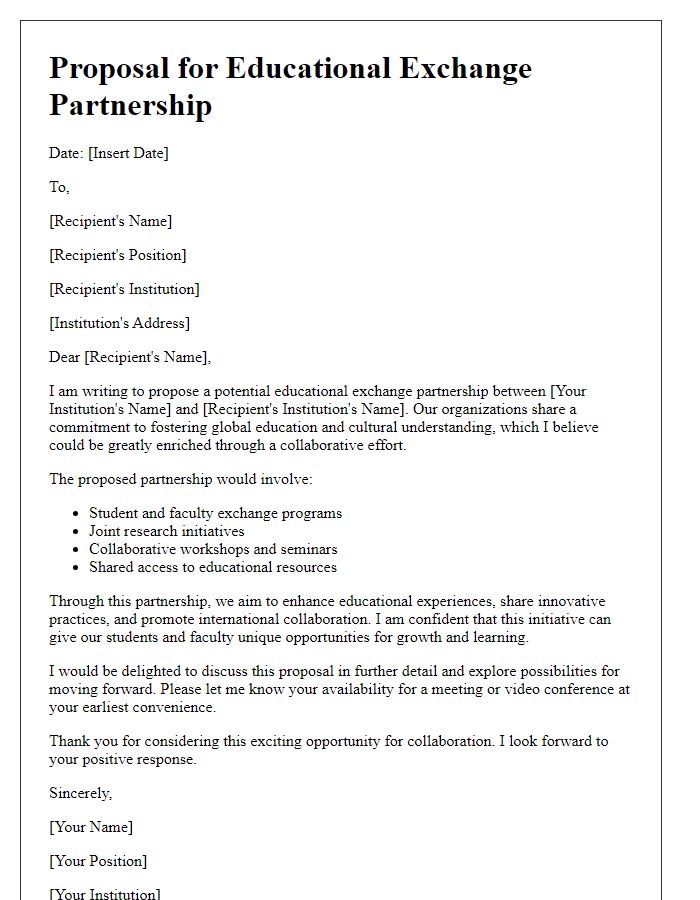
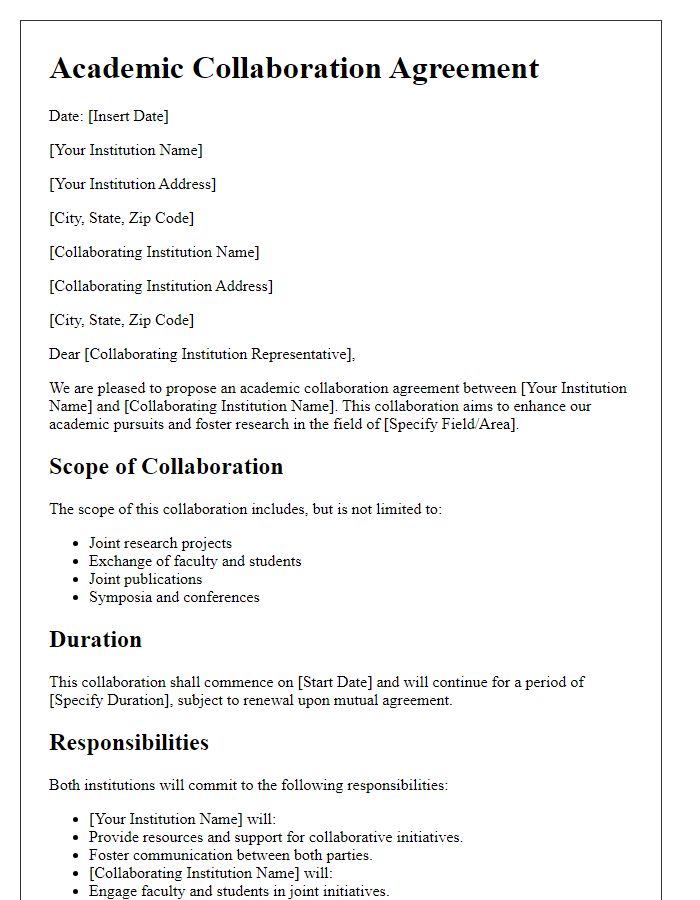
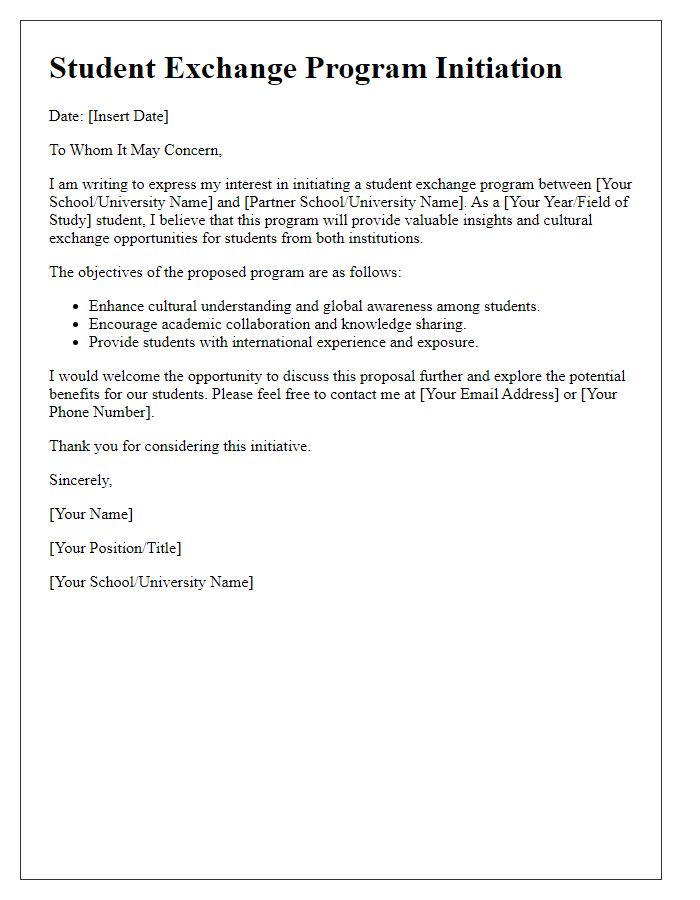
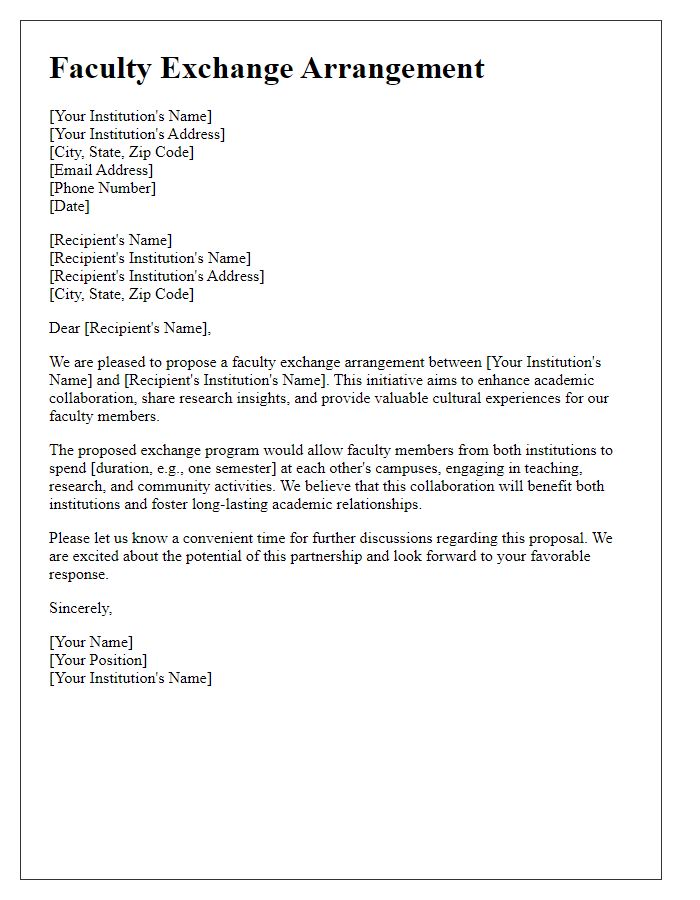
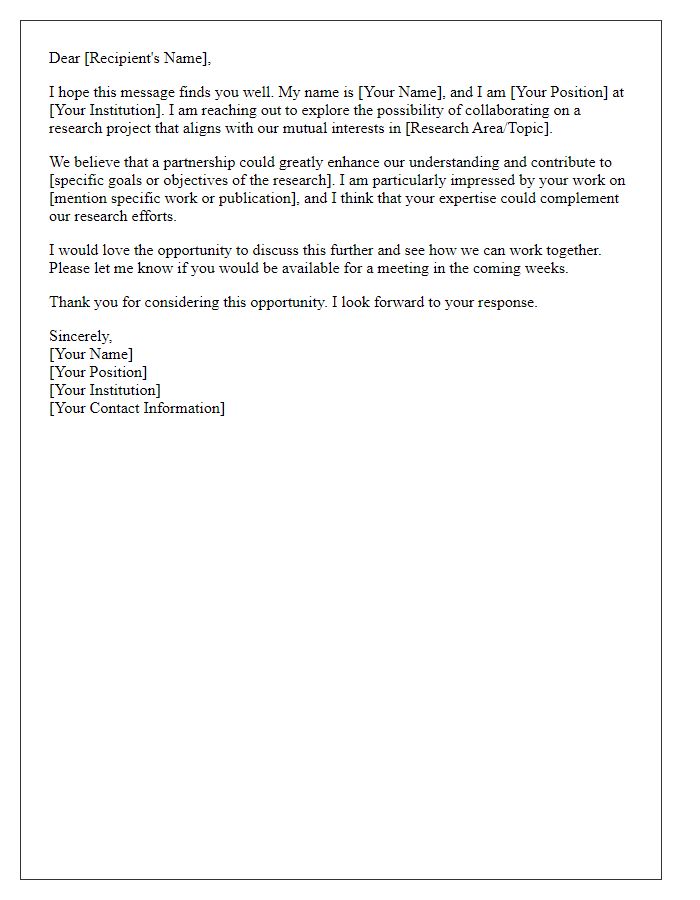
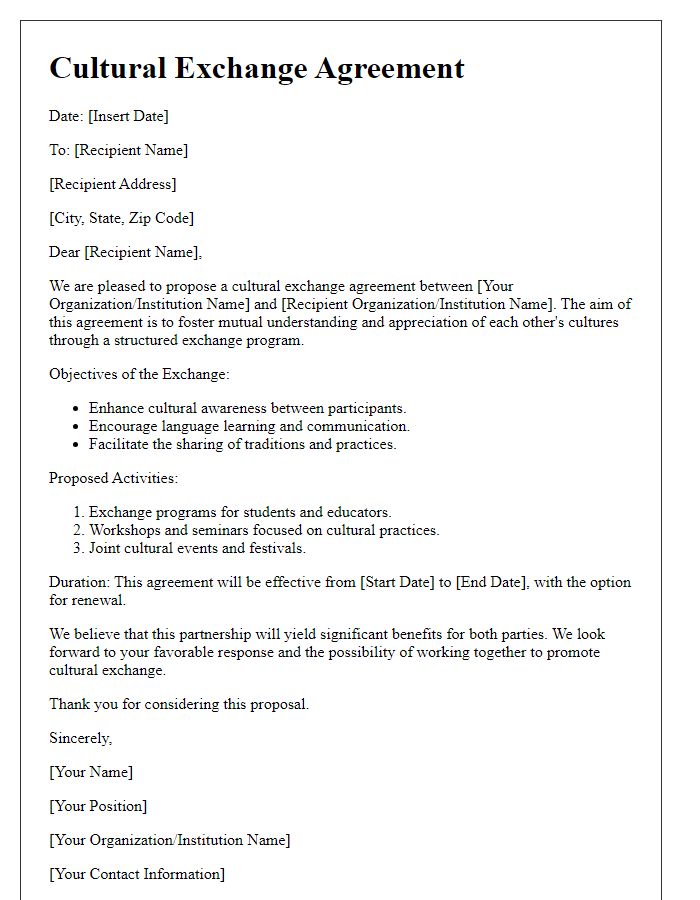
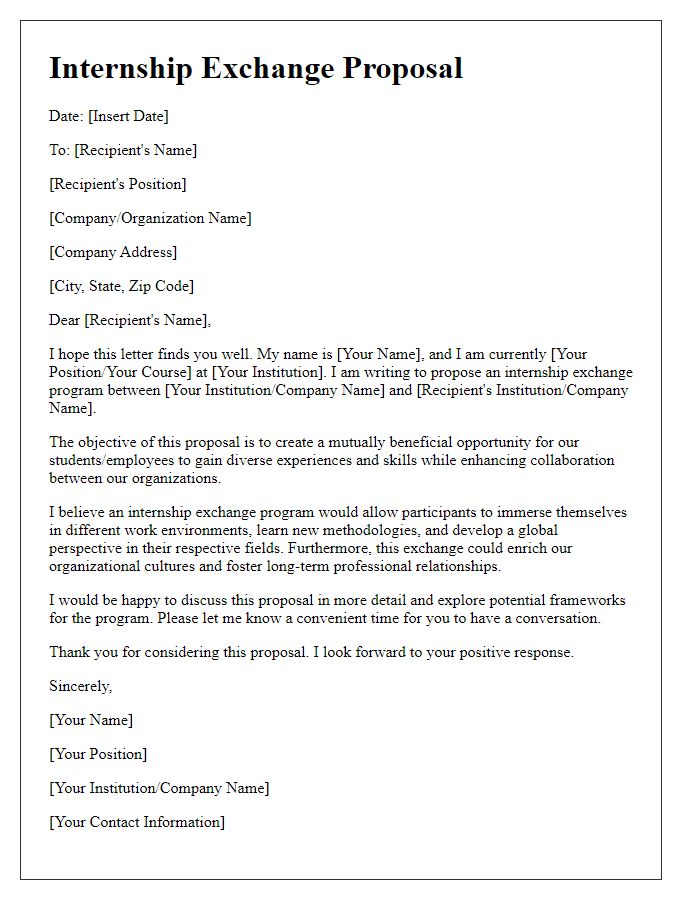
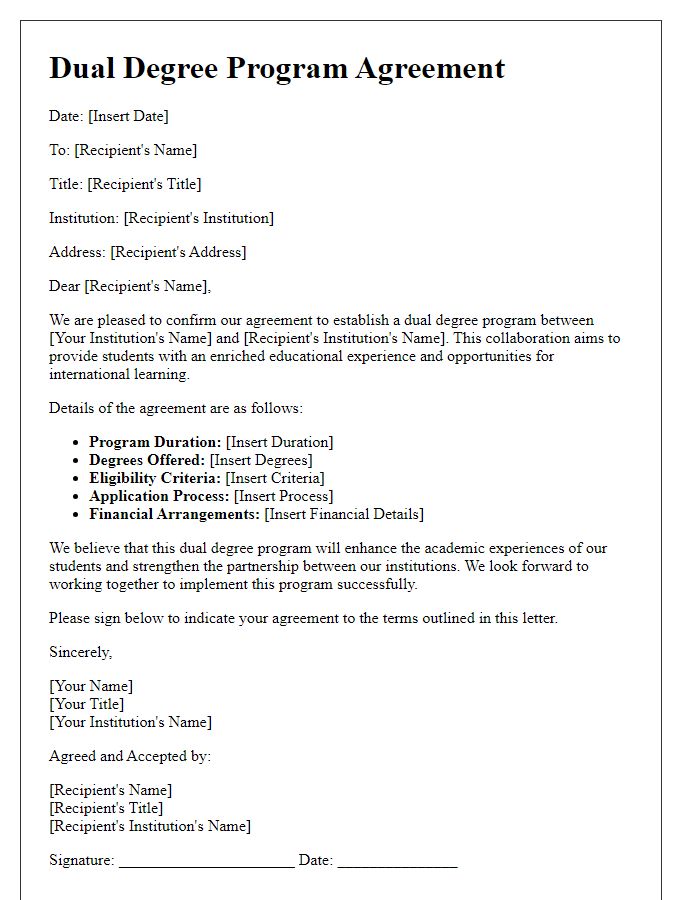
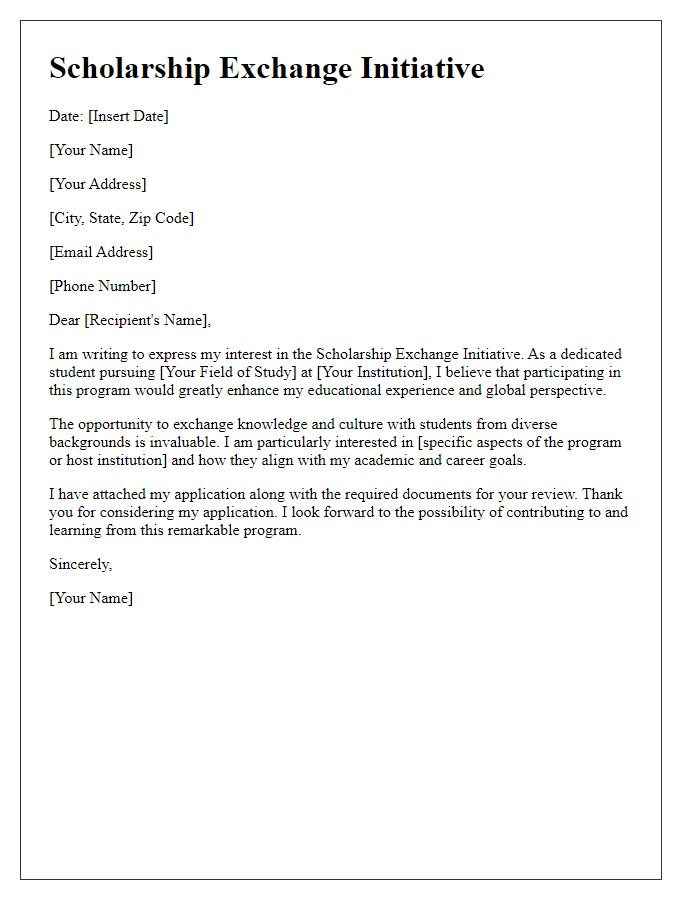
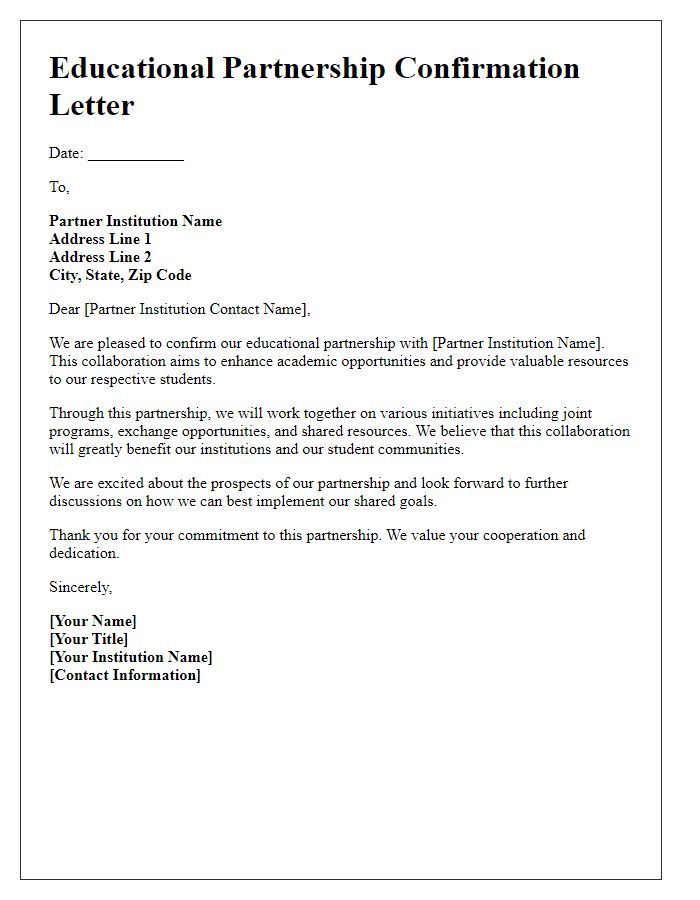


Comments